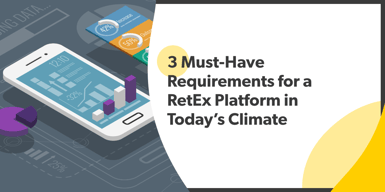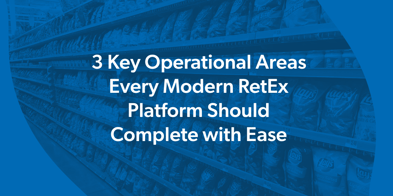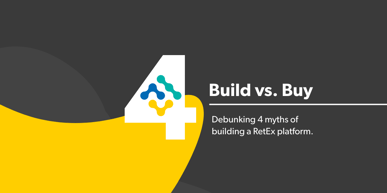Has the last 18 months had your team feeling like your current visibility and control over your company’s retail execution is limited? Inflexible? Have any Sales or Marketing business leaders wanted to pivot their strategies and teams but felt limited to what their tools allowed today? If so, you are certainly not alone.
In 2020, many CG companies found they were underinvested and underprepared with their technology to manage through the fast-changing conditions in retail. Many struggled, and lost share to disruptors who were positioned to pivot quickly, and take advantage of the shifting market conditions both on and offline. From supply chain issues, to out of stocks, to furloughed or minimized field teams, the challenges facing CG companies were many. In 2021 and beyond, many Sales and Marketing Leaders will desire and even demand the ability to quickly see and adapt their field and sales teams to the still-evolving market conditions within the Retail space. A very strong, foundational, well-integrated tech stack can make or break this ability to pivot, and change courses quickly.
We’ve compiled the top content pieces you may have missed in this blog below. Read, watch, and listen to retail leaders and experts break down the modern, nimble set of best practices and technologies that are driving key performance improvements and providing a competitive advantage.
Discover Insights
.png?width=345&name=IT%20leaders%20checklist%20(1).png) In this piece, Peter Billante, Chief Product Officer at Repsly covers a handful of important questions CIOs and IT leaders should ask themselves, their teams, and business partners to help determine whether their current method of operating and tracking their retail execution is old, antiquated, and a barrier to success.
In this piece, Peter Billante, Chief Product Officer at Repsly covers a handful of important questions CIOs and IT leaders should ask themselves, their teams, and business partners to help determine whether their current method of operating and tracking their retail execution is old, antiquated, and a barrier to success.
.png?width=345&name=field%20sales%20checklist%20(1).png) Check out 25 key statements sales leaders should ask themselves to ensure their retail technology solutions and apps are modern, mainstream, and setting their field teams up for success. Read through, and depending on your answers (or your inability to answer at all), you may want to re-evaluate your toolset for 2022.
Check out 25 key statements sales leaders should ask themselves to ensure their retail technology solutions and apps are modern, mainstream, and setting their field teams up for success. Read through, and depending on your answers (or your inability to answer at all), you may want to re-evaluate your toolset for 2022.
Learn Strategic Approaches
.png?width=384&name=salesforce%20vs.%20retail%20execution%20(1).png) What’s one of the most common barriers to success we hear when talking to CPG brands about their technology stack? “Our field team is using Salesforce's CRM to stay organized in the field.” In this piece, we’ll fully unpack a handful of common questions, and explain the difference between Salesforce (or a comparable CRM platform) and a retail execution platform, and how having a modern and nimble RetEx platform actually enhances the value your team gets out of the data stored in your CRM.
What’s one of the most common barriers to success we hear when talking to CPG brands about their technology stack? “Our field team is using Salesforce's CRM to stay organized in the field.” In this piece, we’ll fully unpack a handful of common questions, and explain the difference between Salesforce (or a comparable CRM platform) and a retail execution platform, and how having a modern and nimble RetEx platform actually enhances the value your team gets out of the data stored in your CRM.
 In this blog, we’ll delve deeper into three key areas CIOs and IT leaders of FMCG companies should focus on to help determine whether their current method of operating and tracking their retail execution is no longer best of breed, and even a potential hazard to their future growth success, including B2B consumerization of the user experience, integrations, and rollouts.
In this blog, we’ll delve deeper into three key areas CIOs and IT leaders of FMCG companies should focus on to help determine whether their current method of operating and tracking their retail execution is no longer best of breed, and even a potential hazard to their future growth success, including B2B consumerization of the user experience, integrations, and rollouts.

In this blog, we discuss three key operational areas every sales leader should ensure their retail technology solutions and apps can cover. In today’s CPG landscape, you need a platform that is modern, mainstream, and setting the field up for success. Read through, and depending on your answers (or your inability to answer as it may be), you may want to re-evaluate your toolset for 2022.
Hear from Experts
 In this exec white paper, you will discover how today’s successful CG companies are winning in the marketplace through nimble retail execution strategies and technologies that improve performance metrics and maximize sales. Gone are the days of manual entry by field teams, disconnected data in software silos, and receiving performance reports well after promotions and merchandising campaigns have ended.
In this exec white paper, you will discover how today’s successful CG companies are winning in the marketplace through nimble retail execution strategies and technologies that improve performance metrics and maximize sales. Gone are the days of manual entry by field teams, disconnected data in software silos, and receiving performance reports well after promotions and merchandising campaigns have ended.

Has your IT team considered building your retail execution or field team management platform rather than buying one from a software vendor? All we can say is WAIT! There may be some hidden costs to consider before undertaking a project of that scale. In this blog, Repsly’s CEO, Mat Brogie, and Chief Product Officer, Peter Billante, help break down some of the most common myths about building vs. buying a platform they’ve heard over their years of experience in the industry.


.png?width=345&name=IT%20leaders%20checklist%20(1).png)
.png?width=345&name=field%20sales%20checklist%20(1).png)
.png?width=384&name=salesforce%20vs.%20retail%20execution%20(1).png)






